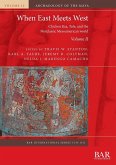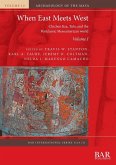Bioprospecting--the exchange of plants for corporate promises of royalties or community development assistance--has been lauded as a way to develop new medicines while offering southern nations and indigenous communities an incentive to preserve their rich biodiversity. But can pharmaceutical profits really advance conservation and indigenous rights? How much should companies pay and to whom? Who stands to gain and lose? The first anthropological study of the practices mobilized in the name and in the shadow of bioprospecting, this book takes us into the unexpected sites where Mexican scientists and American companies venture looking for medicinal plants and local knowledge. Cori Hayden tracks bioprospecting's contentious new promise--and the contradictory activities generated in its name. Focusing on a contract involving Mexico's National Autonomous University, Hayden examines the practices through which researchers, plant vendors, rural collectors, indigenous cooperatives, and other actors put prospecting to work. By paying unique attention to scientific research, she provides a key to understanding which people and plants are included in the promise of "selling biodiversity to save it"--and which are not. And she considers the consequences of linking scientific research and rural "enfranchisement" to the logics of intellectual property. Roving across UN protocols, botanical collecting histories, Mexican nationalist agendas, neoliberal property regimes, and North-South relations, When Nature Goes Public charts the myriad, emergent publics that drive and contest the global market in biodiversity and its futures.
Hinweis: Dieser Artikel kann nur an eine deutsche Lieferadresse ausgeliefert werden.
Hinweis: Dieser Artikel kann nur an eine deutsche Lieferadresse ausgeliefert werden.








